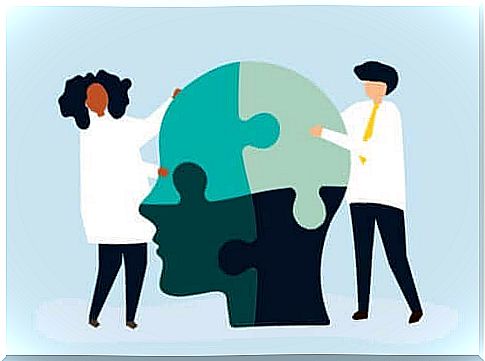Psychosocial Intervention In Mental Health

What is psychosocial intervention and why is it so important for mental health?
According to the World Health Organization (WHO), health aspects also include physical, mental and social factors, and are not just about diseases.
To be able to achieve or maintain this state, you can use different strategies in different fields. One of these fields of knowledge and its application is precisely psychological intervention in mental health.
Before we move on to intervention in mental health, it is important that we are aware of what psychosocial interventions are about.
According to Alvis (2009), psychosocial intervention is a process used to develop people’s abilities.
It allows people to take control of their individual and social environment. This increases people’s well-being and quality of life, and gives them the tools they need to solve problems and make changes in their social environments.
What is mental health?
As Oramas, Santana and Vergara (2013) said, mental health means learning about reality and then transforming it through confrontation, management and integration of conflict resolution.
It concerns both those who are internal to the individual and those by whom the individual is surrounded. When this learning process is disrupted or the individual fails to achieve his commitments, one can start talking about a disease.
Others, such as Riviera, said something similar: that mental health is seen as the ability to maintain dialectical and transformative relationships with the world, enabling him to resolve his individual internal contradictions as well as those related to his social context (quoted by Oramas, Santana, and Vergara 2013).
According to the WHO, mental health is defined as “a state of well-being where each individual realizes his or her own potential and can handle life’s usual stressful moments, work productively and contribute to their environment.”

People’s abilities to deal with daily conflicts and transform their reality are of great importance, but there are other crucial factors when it comes to mental health:
- The social context. Situations of poverty, abuse or belonging to minority groups.
- Family background.
- Comorbidity with other chronic diseases.
The psychological and the social
The psychosocial interventions are carried out through two intertwined contexts: the psychological and the social. The individual must begin to think about his entire social environment and the environment in which he mixes.
When you perform an operation, it is important to remember how important primary care is. This is the care service that is closest at hand. Thereafter, specialists will evaluate the patient.
One thing we must keep in mind is that it is important that the various health experts are coordinated in their work in order to be able to achieve the set goals.
It can be important with pharmacological treatment (which is always prescribed by a doctor of course) so it is important that we do not forget the relevance of psychosocial interventions.
As indicated in the guide for Good Practices in Intervention in People with Mental Illness (106), this intervention must include social support, supervision and social rehabilitation.
The main goal of this practice is to contribute to the autonomy of a person suffering from mental illness.
Different needs from case to case
Individuals must receive individual and personal support. Here are some things to keep in mind:
- The needs of the individual.
- To provide support to the family and the immediate circle.

Psychosocial interventions in people with mental illness include:
- Activities related to their living situation: monitoring and assistance while searching for a home, etc.
- Daily activities.
- Support for instrumental daily activities.
- Monitoring and training regarding how to take medication
- Advice when working with organization and time management
- Training for social life and family life
- Socio-legal advice
People nowadays are more aware of the importance of mental health than they were a few years ago. However, there is still a lot to learn and understand when it comes to mental illness.
As a society, we are becoming increasingly empathetic, tolerant and informed about this subject.
For this and other reasons, it is important to help those who need it to see a psychologist and to make them understand how important intervention in mental health really is.









